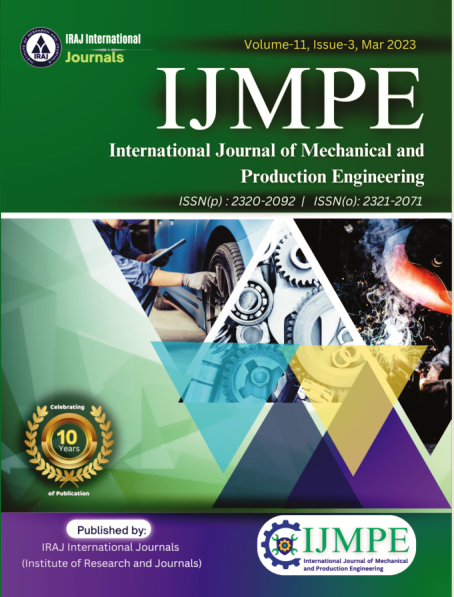Publish In |
International Journal of Mechanical and Production Engineering (IJMPE)-IJMPE |
 Journal Home Volume Issue |
||||||||
Issue |
Volume-2,Issue-6 ( Jun, 2014 ) | |||||||||
Paper Title |
Oxidation Reduction Of Methane With Palladium-Ruthenium Bimetallic Catalysts Under Toxication Effects Of Hydrogen Sulfide | |||||||||
Author Name |
R. Wiratchawong, W. Wechsatol, K. Wannatong, S. Charojrochkul, N. Laosiripojana, E.Wirojsakunchai | |||||||||
Affilition |
Masters Of Mechanical Engineering (M.Eng) at King Mongkut's University of Technology Thonburi, Thailand PTT Research and Technology Institute, PTT, Thailand, 4MTEC Research and Technology Institute, NSTDA, Thailand, The Joint Graduate School of Energy and Environmental, KMUTT, Thailand, The Department of Mechanical Engineering, KU, Thailand | |||||||||
Pages |
52-55 | |||||||||
Abstract |
Catalytic converter is typical emission reduction equipment installed in automobiles. Due to recent economic feasibility of natural gas in transportation, the modification of automobile and truck engines to operate with natural gas has gained popularity. The high concentration of methane in exhaust emission from retrofitted natural gas engines has drastically created air pollution concern. In this work, the catalyst oxidation reduction of methane was investigated. Palladium (Pd), a novel and traditional catalyst material known for its effectiveness in methane reduction is toxicated under the presence of hydrogen sulfide (H2S), which is a normal composition found in natural gas. Ruthenium (Ru) has recently been recommended as a replacement material for Palladium. This work focuses on the methane reduction effectiveness and degradation of Palladium and Ruthenium catalysts under the presence of hydrogen sulfide. The results show hydrogen sulfide causes significant degradation of methane reduction for Palladium. Ruthenium seems to tolerate better for methane reduction under the effect of hydrogen sulfide toxication. | |||||||||
| View Paper | ||||||||||